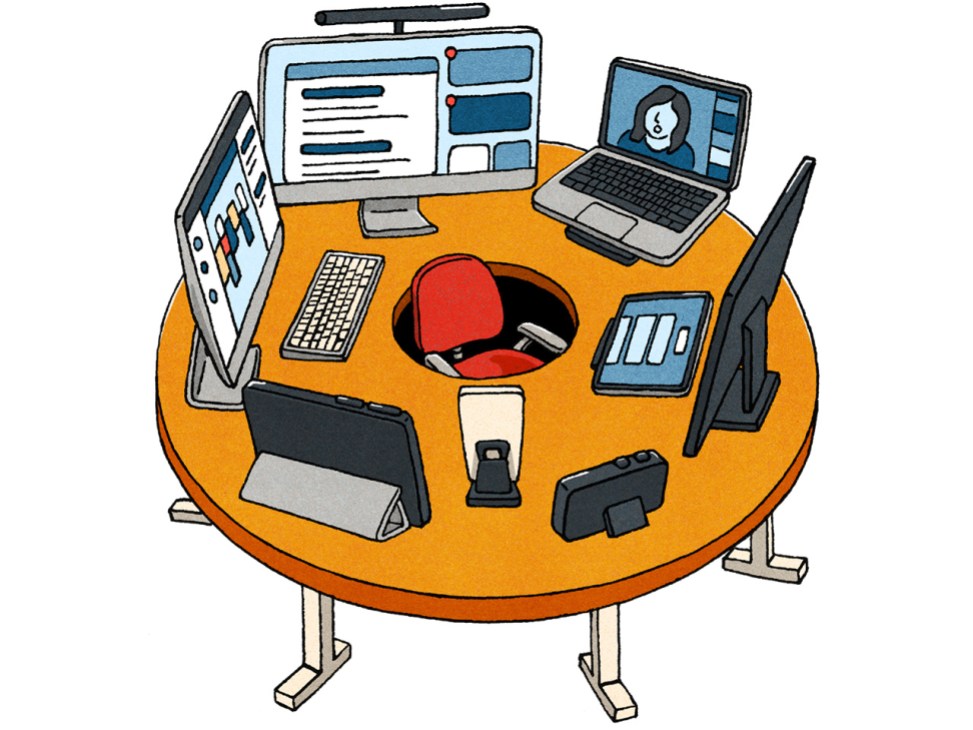How we work must change: let’s not have a meeting about it
Bad news I’m afraid, hard work is no longer its own reward. According to weirdo workaholics such as Elon Musk, success is instead a numbers game and you’re probably not applying yourself assiduously enough by his standards. “Nobody ever changed the world on 40 hours a week,” he once notably said in a post on X, musing instead that 80 to 100 hours is more conducive to earthly improvement.
Now you might question Musk’s wisdom – and his seemingly limitless time to post half-formed thoughts online – but he’s right in one respect. Doing anything meaningful usually takes both time and effort. But how much of each is open for debate.
According to the Organisation for Economic Co-operation and Development (OECD), the average working week in Germany was fewer than 30 hours in 2024 but more productive than a 40-plus hour slog in Mexico. There’s also growing evidence that working more than 50 hours a week leads in many cases to a fateful collapse in productivity and is disastrous for our health. Cue the slightly silly debates about limiting the working week. It’s fine for a foot-dragger in the local council but less so for entrepreneurs, those serving customers, working across time zones or adapting to time-sensitive information.

There’s more to consider too. Take the long-braced-for but yet-to-materialise upheaval of the labour market by AI, blockchain or superintelligence (or NFTs or the Metaverse before them), and a credible working hypothesis for how we work best still seems as far away as a ski holiday in sultry summer. But perhaps we’re being a little simplistic about our idea of success?
Microsoft is at least beginning to acknowledge the negative effects of long hours, endless emails, meetings and the online overload. Its Work Trend Index identifies workers as carrying a “digital debt” and registers an intensification of work that’s fast outpacing the human capacity to process the information with which we’re bombarded.
“It’s all a bit absurd,” says Markus Albers, author of the new book The Optimisation Lie (published in German). “One of the very companies whose products distract us, keep us in meeting loops and encourage a permanent state of collaboration seems to have suddenly realised that it’s not such a good idea.” In his essay for us in the out-today issue of Monocle, Albers unpacks the ennui and exhaustion to find a better balance (longer hours, alas Elon, aren’t the key).
We need to reframe the idea of work, not as toil but as a good thing, says academic Hans-Joachim Voth, scientific director of UBS Center for Economics in Society. In his study of 1,500 workers in the US, he found “the most important source of fulfilment was work”, not the relentless pursuit of leisure you might expect from an idle scroll through social media. “Doing something meaningful, mastering tasks and receiving appreciation. Taking pride in one’s achievements, contributing to a greater whole and camaraderie were key,” he said recently in an interview with the NZZ newspaper.
So, perhaps it’s best to resist tallying your time by the hour or pinning your productivity to meaningless emails or endless meetings – maybe that might change the world in its way. Success, whether you’re a carpenter or a CEO, is about how work makes you feel. Counting the hours might be the first sign that you’ve got the balance badly wrong.
Josh Fehnert is Monocle’s editor. The essay by Markus Albers and interview with Hans-Joachim Voth are both published in Monocle’s out-today September issue of the magazine.



